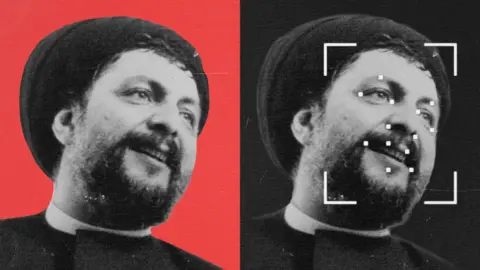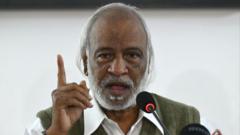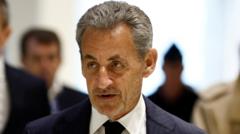In a potentially historic move, French prosecutors have requested a seven-year prison sentence for former President Nicolas Sarkozy in connection with his 2007 campaign financing. The accusations allege that Sarkozy unlawfully received financial support from the Libyan government under Muammar el-Qaddafi, a claim that has escalated concerns over the politician's legacy.
Sarkozy, who ruled France from 2007 to 2012, has consistently refuted the allegations, while invoking defenses against the prosecution's approach. The request for such a severe sentence would set a remarkable precedent, marking the first time since the establishment of the Fifth Republic that a former French president could face imprisonment.
The trial, which has captured national and international attention, commenced in January, with Sarkozy's legal team expected to deliver final arguments next month. The court's verdict is anticipated to be postponed for future deliberation.
Compounding the potential fallout, prosecutors have also suggested a monetary penalty of 300,000 euros (approximately $340,000), a ban on Sarkozy's eligibility for future political office, and the loss of certain civic rights. Sarkozy has vehemently criticized the prosecution's recommendations, framing them as an attempt to obscure the weaknesses in their case.
The legal battle exemplifies the extensive and intricate nature of Sarkozy's connections to the Qaddafi regime, once seen as a controversial but valuable ally in the region. Since Qaddafi's death in 2011, the complexities surrounding his funding of foreign political campaigns have only intensified. As the trial progresses, the implications of the case could reverberate throughout French politics for years to come.
Sarkozy, who ruled France from 2007 to 2012, has consistently refuted the allegations, while invoking defenses against the prosecution's approach. The request for such a severe sentence would set a remarkable precedent, marking the first time since the establishment of the Fifth Republic that a former French president could face imprisonment.
The trial, which has captured national and international attention, commenced in January, with Sarkozy's legal team expected to deliver final arguments next month. The court's verdict is anticipated to be postponed for future deliberation.
Compounding the potential fallout, prosecutors have also suggested a monetary penalty of 300,000 euros (approximately $340,000), a ban on Sarkozy's eligibility for future political office, and the loss of certain civic rights. Sarkozy has vehemently criticized the prosecution's recommendations, framing them as an attempt to obscure the weaknesses in their case.
The legal battle exemplifies the extensive and intricate nature of Sarkozy's connections to the Qaddafi regime, once seen as a controversial but valuable ally in the region. Since Qaddafi's death in 2011, the complexities surrounding his funding of foreign political campaigns have only intensified. As the trial progresses, the implications of the case could reverberate throughout French politics for years to come.






















